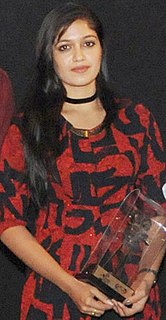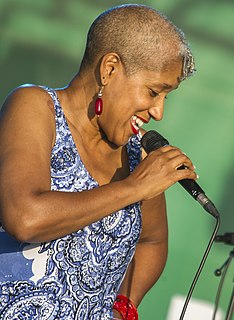A Quote by Meghana Raj
It is okay, I believe it is not wrong for the industry or the audience to think that a lead actress must look a certain way or have a body of a certain type.
Related Quotes
Whenever I go to any particular event, people are shocked that I'm a fighter. To be a fighter, I have to look a certain way, and to be an actress, I have to look a certain way. I have to change that; I've joined acting to do meaningful cinema and to show that there is much more than glamour that actresses can offer.
I think after time goes by and you earn certain rights or you break through certain barriers, you could sometimes, maybe, take it for granted what you have now that you didn't have before. And then that would lead to a certain lack of community, in a way, caring in a way, that I saw before [in gay society].
To each his own, but I just think that we women have a certain body type. As Indian women, we have a beautiful body type. And I believe in the celebration of curves. Whether it's Salma Hayek, Penelope Cruz, Zeenat Aman or Shilpa Shetty, they are very curvaceous and beautiful. I don't know why anyone would want to fight that.
If you test Iron Man and that audience doesn't respond well, you can be damn sure that there is something wrong with the movie that you have to address. Because they're expecting a certain amount of action, right? They want a hero. There are certain things that have to be compatible with the way the audience is thinking about it. If you take some other film, like No Country for Old Men, you can end up with all kinds of crazy reactions.
You have a certain objectivity, as a member of the audience, and you can come away maybe being provoked into a certain discourse or a certain arena of questioning, regarding how you would deal with things that your character has to deal with. Whereas when you're doing a film, once you start asking, "What would I do?," you're getting the distance greater between yourself and the character, or you're bringing the character to you, which I think is self-serving, in the wrong way. The idea is to bring yourself to the character.
Plays have a celebratory nature that no other form has. Theater always meant celebration, a birthday, a reward for good grades. I felt at home in a theater. I loved being part of an audience. All the rules - the audience has to see the play on a certain date at a certain time in a certain place in a certain seat.




































